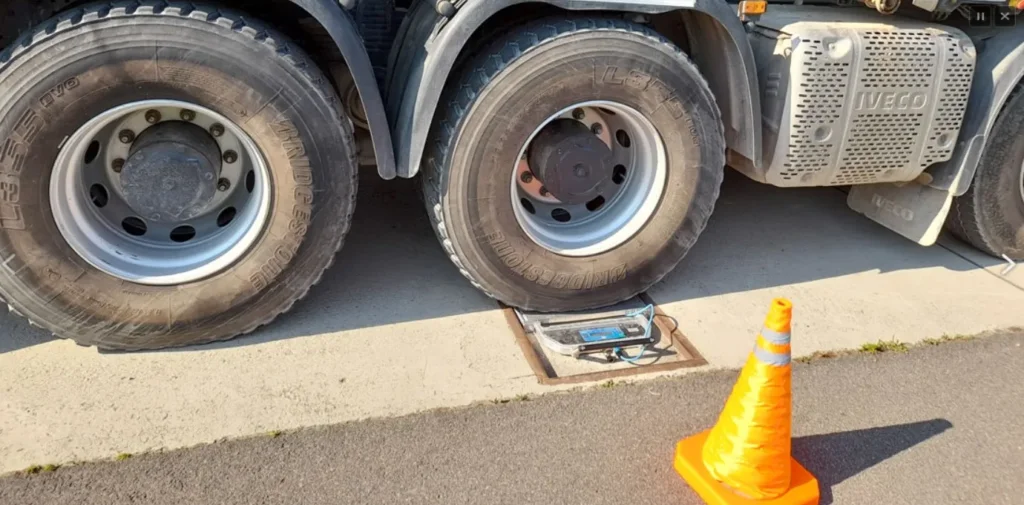The project will be based at the Rur-Scholle-Süd rest area near Düren, on the A4 heading towards Cologne. The pilot facility in North Rhine-Westphalia is scheduled to go into operation in 2026, with an initial test phase set to begin at the end of 2024.
The route between Aachen and Cologne is one of the most important freight corridors from the ports of Antwerp and Rotterdam. Also located nearby is the Cologne-Eifeltor container terminal – a key hub for combined transport.
Protecting roads, bridges and road users
The project has a clear objective: to identify overloaded trucks more quickly and remove them from circulation. Excessive axle loads put a strain on infrastructure – particularly bridges – and can lead to hazardous situations on the roads.
This not only affects the vehicles involved but also poses risks to all other road users. There is also an environmental dimension, as overloaded trucks consume more fuel and emit higher levels of CO₂.
Modern technology for targeted enforcement
At the heart of the new checkpoint is a weigh-in-motion (WIM) system that measures axle loads while vehicles are in motion. Trucks with abnormal loads are automatically diverted to the rest area via LED displays. There, they are reweighed on a dedicated lane equipped with combined dynamic and static weighing systems.
If overloading is confirmed, the vehicle is prohibited from continuing its journey. It must be unloaded or reloaded, and an administrative offence procedure is initiated, explains BALM.
Greater efficiency, less damage
The technology allows for faster, more accurate checks without unnecessarily disrupting the flow of traffic. BALM is responsible for vehicle monitoring, while Autobahn GmbH is in charge of the construction and operation of the systems. Both authorities stress that the new system is a vital step towards extending the lifespan of motorway infrastructure – particularly in light of increasing volumes of heavy goods traffic.
Sixteen such checkpoints are to be built nationwide by 2028. The investment per location is estimated at around €2.5 million. Insights gained from the pilot project on the A4 will be used to inform the development of future systems.
The industry has also expressed its support. Dirk Engelhardt, CEO of the Federal Association of Road Haulage, Logistics and Waste Disposal (BGL), welcomed the project back in 2023.
“Road safety is paramount – compliance with permissible axle loads and total vehicle weight is of crucial importance,” said Engelhardt. However, he stressed the need for proportionality. “We welcome the new checkpoints if they effectively identify the bad apples. At the same time, we urge enforcement authorities to distinguish between deliberate overloading and situation-related deviations – such as partial unloading.”
The BGL has also suggested examining alternative vehicle concepts. An expert study on new vehicle combinations with more than five axles could contribute to a more structural solution to the problem.











